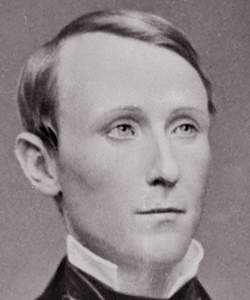William Walker (American National Biography)
Scholarship
Walker's government in Nicaragua was short-lived. He involved himself in an attempt to take over the Accessory Transit Company…. He chose the losing side in his support of this takeover effort and thus became the target of Cornelius Vanderbilt. Vanderbilt maintained control of the company and then set about obtaining the cooperation of Central American republics to overthrow Walker's regime. … With the specific assistance of Costa Rica, Walker's supply routes to the United States were severed, making his military defeat easy.
On 1 May 1857 Walker surrendered to U.S. naval authorities off the coast of Nicaragua. Walker's support from the U.S. government as well as some special groups had eroded since he had become the president of Nicaragua. In June 1857 the frigate Wabash arrived at New York with 138 survivors of Walker's party, including thirteen women and five children. These refugees were in wretched condition and bitterly criticized Walker for deserting his followers in their desperate situation. Walker was in New York when their complaints appeared in the newspapers, but he chose not to answer the charges. By November Walker had returned to the United States and was once again plotting to return to Nicaragua. Shortly thereafter Walker attempted to lead another group of men to Nicaragua, but U.S. naval authorities intercepted him and forced his return to the United States. President James Buchanan in an address to Congress during December 1857 struck out against filibusters as being detrimental to U.S. interests.
On 1 May 1857 Walker surrendered to U.S. naval authorities off the coast of Nicaragua. Walker's support from the U.S. government as well as some special groups had eroded since he had become the president of Nicaragua. In June 1857 the frigate Wabash arrived at New York with 138 survivors of Walker's party, including thirteen women and five children. These refugees were in wretched condition and bitterly criticized Walker for deserting his followers in their desperate situation. Walker was in New York when their complaints appeared in the newspapers, but he chose not to answer the charges. By November Walker had returned to the United States and was once again plotting to return to Nicaragua. Shortly thereafter Walker attempted to lead another group of men to Nicaragua, but U.S. naval authorities intercepted him and forced his return to the United States. President James Buchanan in an address to Congress during December 1857 struck out against filibusters as being detrimental to U.S. interests.
Joseph A. Stout, Jr., "Walker, William," American National Biography Online, February 2000, http://www.anb.org/articles/20/20-01068.html.





